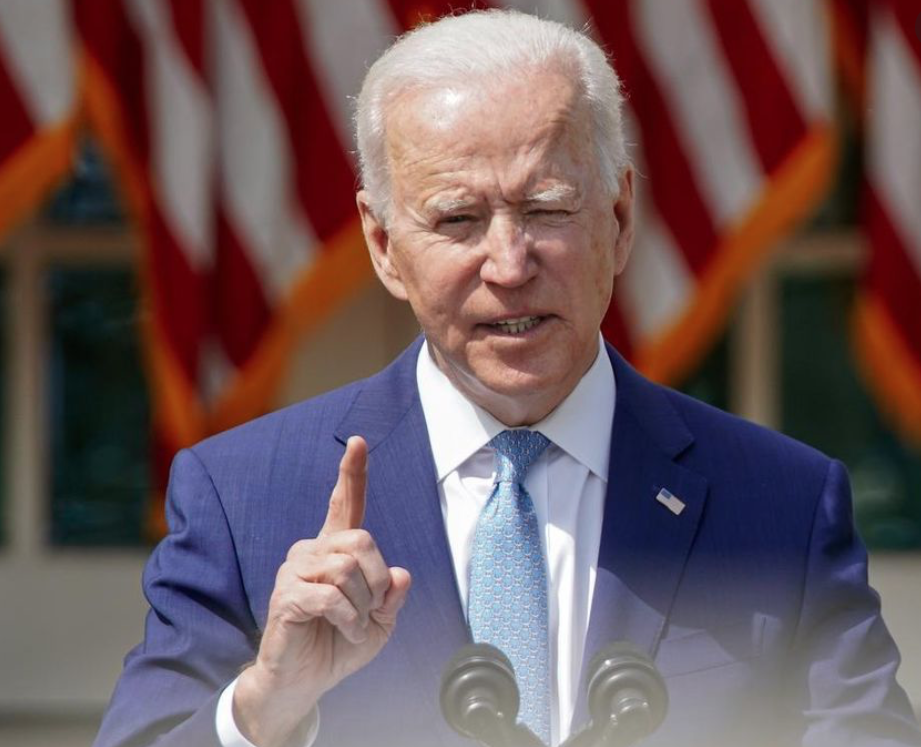Walking The Line: Biden Steps Back From Pandemic To Focus On Establishment Policy Initiatives

Image Courtesy of the Toronto Star
By Justin Lamoureux
President Biden took a step away from the ongoing COVID-19 response this week. Choosing to direct his attention to a handful of policy issues, he spoke to elements of his party’s agenda that had received little coverage in recent weeks.
Taking a page out of his party’s playbook, President Biden announced that he was forming a commission to explore the possibility of bringing reform to the U.S. Supreme Court. Most likely, this would expand the court beyond nine members to limit President Trump’s impact on the court. Biden has long been under pressure from Democrats who are disillusioned about the court’s move rightward; President Trump confirmed three of the court’s nine justices – this includes Amy Coney Barrett, who was rapidly confirmed ahead of last year’s election. Conservatives maintain a 6-3 majority on the bench, which was solidified by Barrett’s confirmation. Throughout his campaign, Biden dodged questions about whether he would support expanding the judiciary.
Biden formed the 36-member commission, which plans to hold a number of public meetings, through an executive order. The commission has a six-month deadline and will not force the White House to implement any changes to the judiciary. In addition to expanding the court, the White House says the commission is studying the length of service and turnover of justices, and the court’s case selection, rules, and practices. Liberal members of the Democratic Party also offered suggestions for how the court should be reformed: term limits, a code of ethics, and a more formal process for recusals. Also in the cards is expanding the lower courts; in addition to offsetting the ideological effect of Trump appointees, this would help the U.S. Supreme Court deal with its growing caseload.
In response to a recent pattern of shootings, Biden announced on Thursday that his administration would be taking “limited” steps on gun control. This would involve tightening restrictions on so-called “ghost guns,”which are homemade weapons that can be assembled easily using kits and parts purchased online. Because these firearms do not have serial numbers, they are especially difficult to regulate. The administration also wants to tighten restrictions on pistol stabilizing braces, which allow homemade weapons to be used more accurately. Biden has also begun pressuring members of Congress to assist him in a legislative capacity, drafting and passing more stringent gun legislation. The President said last month that “I don’t need to wait another minute, let alone an hour, to take common sense steps that will save lives in the future.” As a candidate, Biden proposed banning assault weapons and enacting universal background checks; realizing these plans requires the support of lawmakers.
The Justice Department, led by Attorney General Merrick Garland, has been directed to publish model “red flag” laws for states that allow the temporary removal of guns from people considered at high-risk for harming themselves and others. Additionally, new investments will be made in communities with a history of gun violence, and a comprehensive report on firearms trafficking will be prepared on a more consistent basis. Biden has also revealed plans to facilitate changes in leadership at the Bureau of Alcohol, Tobacco & Firearms (ATF); this includes nominating David Chipman to serve as the bureau’s director. A former ATF agent, Chipman is currently serving as a senior policy advisor at Giffords, the organization founded by former congresswoman Gabby Giffords, who became a gun control advocate after being shot in 2011. The ATF has been without permanent leadership since 2015.
Biden’s focus this week revolved largely around issues emphasized and promoted by members of his party. Many Democrats have been making the argument for an expanded judiciary for several years, arguing that doing so would be the most effective response to a large number of
conservative appointees during the Trump Administration. Likewise, gun control has been a fixture of the Democrats’ policy platform for decades. In fact, as a member of the U.S. Senate, Biden co-wrote the Brady Bill, which required background checks on most gun purchases as well as a temporary ban on sales of some military-grade semi-automatic guns. The President’s apparent drive to address these indicates a certain level of commitment to the Democratic establishment. His attention to gun issues likewise signals an evident push to bring his own policy ideas into the spotlight. It remains uncertain whether the Biden Administration could implement substantial changes in either area, but his ability to do so could have implications for his party in coming elections.







